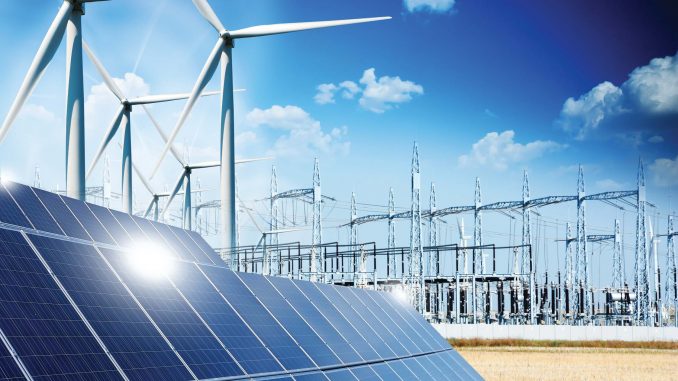
The goods and services tax (GST), which will subsume all indirect taxes and integrate the country into a single market, is arguably the biggest tax reform to be taken since Independence. Under GST, credits of input taxes paid at each stage will be available at the subsequent stage of value addition, which makes GST essentially a tax only on value addition at each stage. The final consumer will thus bear only the GST charged by the last dealer in the supply chain, with set-off benefits at all the previous stages.
GST is expected to bring several benefits to the economy. For the industry, the subsuming of major central and state taxes in GST, complete and comprehensive set-off of input goods and services, and phasing out of the central sales tax will reduce the cost of locally manufactured goods and services. This will increase the competitiveness of Indian goods and services in the international market and boost exports. The uniformity in tax rates and procedures across the country will also go a long way in reducing compliance costs. Meanwhile, consumers are likely to benefit from the reduced tax burden on most commodities owing to efficiency gains and prevention of leakages.
The roll-out of GST will have an impact on all industries and the power sector is no exception. However, the sector is different in one important respect. While most or all of its inputs are subject to and will be covered by the GST regime, the end-product, electricity, will not be included. However, taxes on various capital goods, inputs and input services (both forming part of the capital cost as well as the operations and maintenance [O&M] cost) used for the generation of renewable energy are likely to be subsumed in the GST regime. Taxes paid on procurements would continue to be non-creditable for the energy sector and hence, will form a part of the costs. Accordingly, any impact of the taxes paid on procurements used in the renewable energy sector would have a direct impact on the cost of renewable energy generation. On the basis of the information available in the public domain on the levy of GST, it appears that taxes on procurements for the renewable energy sector would go up, which would lead to an increase in the cost of renewable energy.
Further, it is important to note that the adverse impact of the tax cost would vary from project to project and from one source of renewable energy to another, based on the procurement pattern (import versus domestic purchase) as well as the extent of exemptions available currently.
In this context, Renewable Watch takes a look at the likely impact of GST on the solar, wind and hydropower segments…
Impact on solar projects
Currently, no countervailing duty (CVD), special additional duty (SAD) or basic customs duty (BCD) is levied on the import of inputs for the manufacture of solar modules. Under the proposed GST regime, while these inputs will still be exempt from BCD, integrated GST (IGST) will be applicable on them. Moreover, under the present system, a 5 per cent BCD is levied on the import of other equipment, which is likely to remain under the GST regime as well. There will be an additional component of IGST. Further, no excise duty is currently levied on the domestic procurement of any input for solar power plants, while value added tax (VAT) is applicable in certain states. Both of these are likely to be replaced by IGST. Thus, under the GST regime, there will be an added tax cost on solar power projects, the magnitude of which will depend on the IGST rate fixed by the GST Council.
Meanwhile, input services for the O&M of power plants are currently subjected to a service tax of 15 per cent. The impact of GST on these services will depend on the tax bracket under which they will be placed (6/12/18 per cent).
Impact on wind energy projects
At present, 5 per cent BCD, 12.5 per cent CVD and 4 per cent SAD is levied on the import of wind-operated electricity generators with up to 30 kW capacity. Under the proposed GST law, BCD at 5 per cent will continue to be levied and there will be an incremental component of IGST as well. Further, under the current system, state-specific VAT rates are applicable on the domestic procurement of parts for the manufacture of wind-operated electricity generators, while no excise duty is levied. These parts will be taxed at the GST rate as determined by the GST Council.
Also, as in the case of solar, input services for the O&M of wind power plants are subjected to a service tax of 15 per cent. There is a possibility of a reduction in this tax cost if a lower rate of GST is levied.
Impact on hydropower plants
Under the present system, hydropower projects with a capacity of 500 MW or more are exempt from excise and customs duties. The concessional rate of customs duty can also be availed of under the project import scheme that places goods imported for the purpose of setting up industrial projects or substantial expansion of existing industrial projects under a single tariff category. This facilitates faster assessment and clearance of goods. States can also grant exemption from VAT and entry tax on goods used for setting up small-hydro power projects. However, no exemption is available in the case of input services provided for setting up these projects.
Under the proposed GST law, there is no provision for exempting goods used for setting up hydro projects. GST will be applicable on the supply of all goods and services used for setting up these projects.
Mitigating the impact of cost increases due to GST
Under the current indirect tax regime, several concessions and exemptions are available to renewable energy projects. Under the proposed GST regime, many of these benefits are likely to be withdrawn and some tax components added. This will, in turn, increase the cost of renewable power generation.
Assuming a GST rate of 18 per cent, the indirect tax cost of wind projects is expected to increase by up to 10 per cent. This will translate into an incremental indirect tax cost of Rs 4.5 million per megawatt. Consequently, there would be an increase in tariff by Re 0.30-Re 0.40 per unit. Similarly, in the case of solar projects, at the same GST rate, the indirect tax cost is expected to increase by up to 15 per cent. This will lead to an incremental indirect tax cost of Rs 7.5 million per megawatt and an increase in tariff by Re 0.60 to Re 0.70 per unit. Further, developers may not be able to allow this increase in costs as a pass-through to consumers as the “change in law” clause to allow for amendments in power purchase agreements (PPAs) may not always be possible.
Assuming that 25,000 MW of solar and wind energy capacity is added per year till 2022, the imposition of GST will increase the annual project setting-up costs by up to Rs 30 billion in the case of wind energy projects and Rs 180 billion in the case of solar energy projects.
Given the government’s strong commitment towards promoting the sector and long-term climate change objectives, it is imperative that a rational and favourable taxation regime is put in place for the renewable energy sector. To mitigate the impact of the increased tax burden, the government could consider treating the electricity generated through renewable sources as “zero-rated supply” in the GST regime. This would enable the refund of input tax credit to the project owner. Another alternative is to treat the goods/ services supplied to projects generating electricity using renewable means as “zero-rated supply” for enabling a refund of input tax credit to the supplier. The government could also declare the supply of goods/services to renewable energy projects as “deemed exports” to enable a refund of tax on goods/services or on inputs/input services to the supplier.
Based on a presentation by Dharnendra Kumar Rana, Senior Principal, Advaita Legal, at a recent Renewable Watch conference



